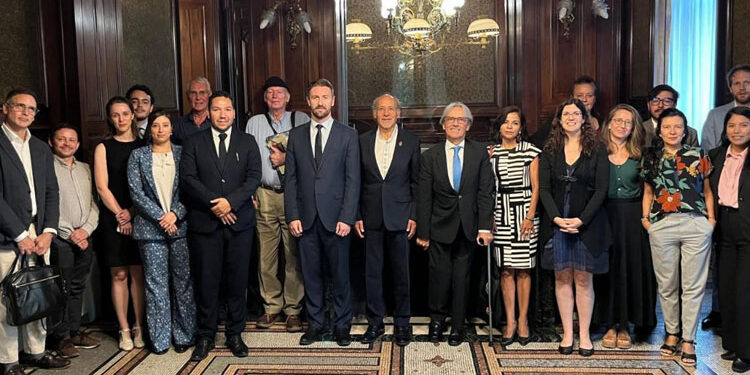The Diplomat
The Colombian Embassy participated in the High-Level Information Meeting on the critical review of coca leaf conducted by the World Health Organization (WHO).
The meeting, held at Casa América on Thursday, September 18, was attended by civil society organizations (TNI and ICEERS), European and Latin American embassies, Spanish institutions, and representatives from the United Nations and academia. The meeting addressed the ongoing review of the international classification of coca leaf.
The meeting was opened by the Bolivian Ambassador to the Netherlands, Roberto Calzadilla, and the Colombian Ambassador to Spain, Eduardo Ávila, who highlighted the importance of this space for information and dialogue.
In his remarks, Ambassador Ávila emphasized that “Colombia’s position is supported by national advances in science, innovation, and technology, which demonstrate the importance of destigmatizing the coca leaf and recognizing its traditional, medicinal, and industrial uses.” He also noted that “this approach is part of the vision of a future of sustainable development, peacebuilding, and industrialization for the country.”
With this event, the Colombian Embassy reaffirms its commitment to an international debate based on scientific evidence, respect for ancestral uses, and the search for innovative solutions that contribute to the well-being of communities and the comprehensive development of the country. Progress has also been made in various informational and cultural activities on the traditional uses of the coca leaf, and the global redefinition of the coca leaf as an element of cultural, heritage, and sustainable value. This initiative, aligned with the country’s foreign policy objectives, seeks to promote inclusive development, respect for the rights of Indigenous and rural communities, and position coca as a tool for rural development and intercultural dialogue.







